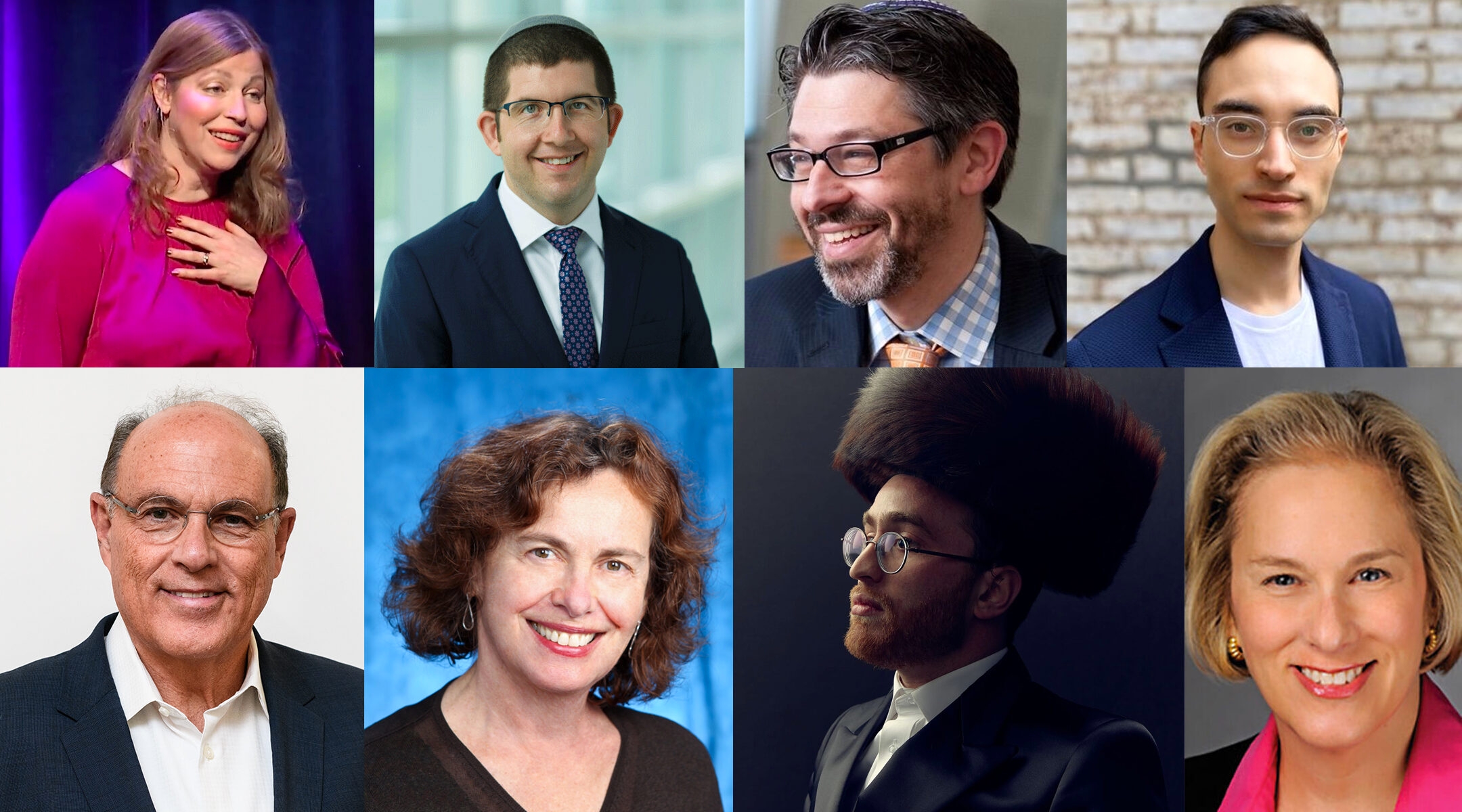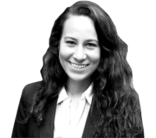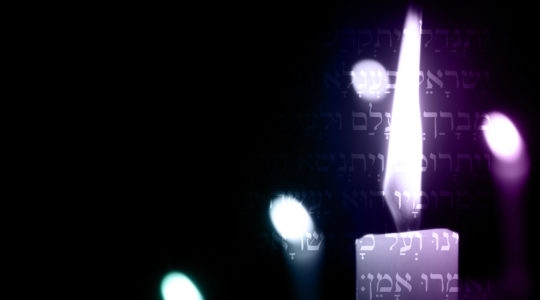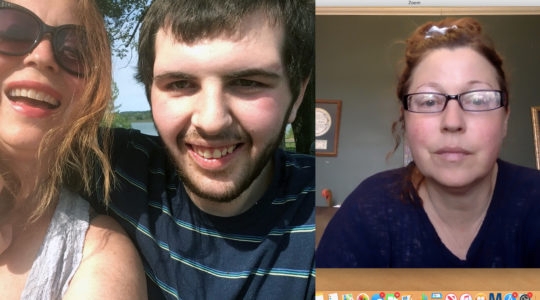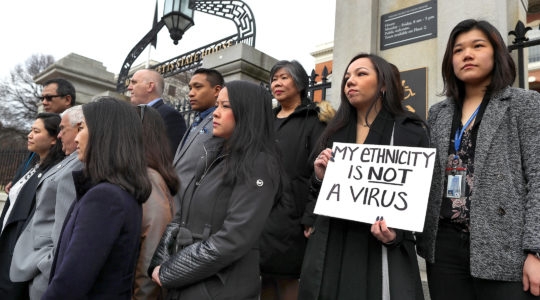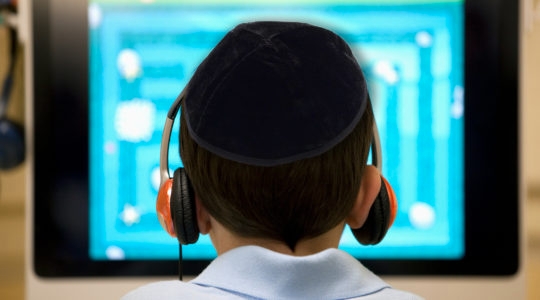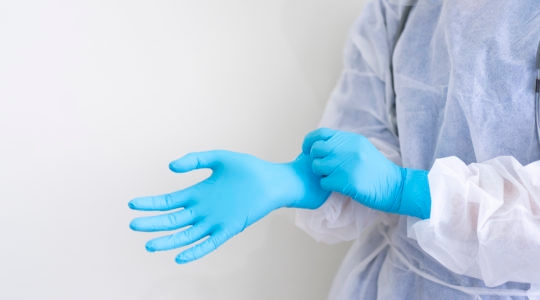(JTA) — What’s most heartbreaking about reading the essays published in March 2020 was that they could have been written today.
The tired joke is that this month is March, which is funny because last month was March, too. The reality is that half of the country is isolated, half is overwhelmed and half a million are dead.
Those without children or family nearby are often bored and lonely. The less fortunate are struggling to pay for basic necessities, battling addiction or substance abuse, or are overwhelmed with health care expenses. Those caring for children or the elderly, already a Sisyphean task in a society mercilessly obsessed by productivity, are barely hanging on.
The scientific community has managed to develop four astonishingly effective vaccines, a true modern miracle. But basic necessities like mental health care, child care and sick leave have become luxury goods.
Jewish community and ritual, a life sustaining force for Jews for thousands of years, has been reduced to uneasy gatherings, standing masked and distanced — alone, together — and computer screens, or selfishly exchanged for public safety.
And some, it’s true, have gained new understanding from this strangest of years — about the ways we are all connected, perhaps, and the things they realize they value the most.
Have we really learned anything in a year turned upside down?
I asked those who wrote essays for JTA in March of 2020, just as the upsets were beginning in earnest, to share how their lives and thinking has changed since then. There are moments of grace and resilience, but there’s not a lot to take solace in.
I mostly feel like crying. Maybe that’s all we can really do.
Responses have been lightly edited for length and clarity.
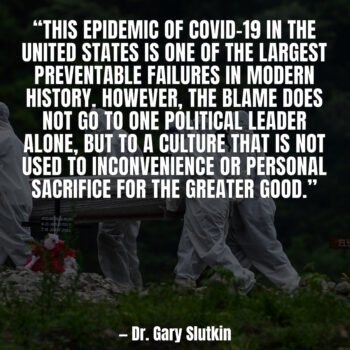
(Getty Images)
“I’m a veteran expert in stopping epidemics. Here’s why Jewish institutions should cancel everything.”
“This epidemic of COVID-19 in the United States is one of the largest preventable failures in modern history.”
I’ve been guiding and leading efforts to control major epidemics in the U.S. and abroad for over 35 years, much of that time with the World Health Organization. Over those years, I learned that populations do not like to make the changes in their behaviors that are needed to stop an epidemic.
These changes may be in sexual behavior (AIDS), contact with sick people (Ebola), or in the case of COVID-19, avoiding gatherings as well as wearing masks, and other inconvenient but lifesaving efforts — changes needed until an epidemic is under control.
I was glad to be helpful to the Jewish community, if I was, as well as to other religious communities in the earlier days of the COVID pandemic. However, with the exception of a very few governors, and a very few cities I worked with, denial was way too strong. And I and we failed.
This epidemic of COVID-19 in the United States is one of the largest preventable failures in modern history. However, the blame does not go to one political leader alone, but to a culture that is not used to inconvenience or personal sacrifice for the greater good. And also to many of my own scientist and media friends and colleagues where communication efforts were not nearly good enough.
The focus was rules rather than understanding the virus in the air; bending of a curve and opening up instead of stopping the virus, which other countries successfully did!
We’re not out of the woods now. There is still way too much complacency and more preventable death to come if people let their guard down prematurely, before we have control.
This denial and inability to wake up to threats is not just about COVID-19 — for the Jewish community as well as the country and beyond — but also about violence and the country’s extremely dangerous political situation.
— Dr. Gary Slutkin
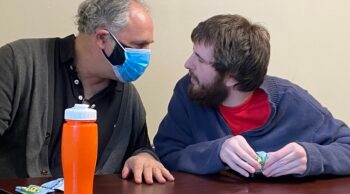
The author’s husband, Fred, left, and son, George (Courtesy of Gabrielle Kaplan-Mayer)
“I can’t see my son who has autism in person because of the coronavirus.”
“I have learned to hold the reality that George has been in the best place for him during this unprecedented lockdown … while also missing our time together terribly.”
One year ago, as the COVID-19 pandemic began, I was adjusting to what it meant to be the mom of a son with multiple disabilities living in a residential treatment center — when I wasn’t allowed to go see him or bring him home for visits anymore.
I am grateful to report that my son George has been healthy, safe, generally happy and able to attend school on his campus in person thanks to the heroic efforts of the staff, therapists and teachers who care for him. We started visiting by Zoom twice a month a year ago, and those visits have been sustaining — to see George’s smiles, to tell him how much we love him, and to know our feelings and energy can be felt back and forth across the screen.
In July, we were blessed to begin seeing him on campus twice a month. These visits are only an hour in length, in a sterile room on his campus, but we have been truly grateful that we can have that time to be together, wearing our masks. There have been some COVID-19 cases in other units on his campus and to contain any spread, our in-person visits have been stopped, sometimes for six weeks at a time.
I have learned to hold the reality that George has been in the best place for him during this unprecedented lockdown — that we would not have been able to provide the structure and support he requires at home — while also missing our time together terribly. I have spent this year going deeper into my spiritual practices than I ever have before, using my time when not working or parenting my daughter to meditate, write, resurrect a yoga practice, and let go of old patterns and ways of thinking that don’t serve me. This is a different way of becoming the best mom to George that I can be, but I believe an essential way. The more that I can hold our lives in love and not fear, I can imagine his future as one in which he always receives the support he needs to live a safe, happy and meaningful life.
There is more to say ... for now, even as I anticipate the day when George will get to come home again, I am also grateful just for this moment.
— Gabrielle Kaplan-Mayer
“An America that is perilous for one minority is unsafe for all.”
Nearly a year ago, I called for American Jews to speak and act in defense of Asian Americans as they began to experience a rise in xenophobic, violent and discriminatory incidents amid the COVID-19 pandemic. It’s tragic that the call remains relevant.
Stop AAPI Hate, a coalition that documents anti-Asian hate and discrimination, has recorded more than 3,000 reported cases since my article was published on March 13, 2020. According to the New York Police Department, there was a 1,900% increase in anti-Asian hate crimes in 2020. Other cities in the U.S. saw similar statistics, which don’t even account for the many incidents that go unreported.
Since my article was published, colleagues and friends in the Jewish community have asked again and again, “what else can we do?” Here’s my advice:
- Ensure that you know how to report a hate crime as a victim or a witness and that you can accurately share that information with others.
- Urge elected officials to pass legislation, such as the NO HATE Act, that give law enforcement agencies the proper tools to respond to and report on these incidents.
- Continue to express solidarity with and listen to our friends and partners in the Asian-American community. Ask how you can be useful at an organizational or individual level, and act accordingly.
This bears repeating: An America that is perilous for one minority is unsafe for all. American Jews continue to stand with Asian Americans.
— Dylan Adelman
In March, I wrote about the beautiful, virtual, connected world of Judaism that COVID-19 opened up to me. One year later I find myself still inspired about what a post-vaccination world will look like for those of us who still need to stay home, but also a bit cautious.
After a few-months burst of all-Jewish Zoom calls all the time, a combination of Zoom exhaustion and people realizing this was going to continue and that hosting was real work that they deserved to get paid for (and they do!) reduced the constant possibilities of prayer, study, book clubs and song sessions.
Still, a steady stream remained — though lately they seem to be dropping off even more. I remain so hopeful that organizations of all sorts will realize how they opened themselves up to so many new people this past year, and that they don’t have to lose those people when they’re ready to meet in person again. There’s no reason they can’t or shouldn’t continue providing accessible virtual events indefinitely to make sure all members of their community can be a part of what they provide.
My thinking has also evolved in a way: Because I didn’t have the opportunities to be connected all the time before the pandemic, I may have underestimated how much energy online social interactions still take. It’s not lazy to need to take a night off from video calling (or even texting!) your friends and recharge.
Be kind to yourself. Surviving in a pandemic is work. A year later, it is still OK to see this time as an opportunity to rest.
— Allison Darcy
— Leebah Stephens
“Growing up the child of Holocaust survivors prepared me for this pandemic.”
“Two vaccines later, we are slowly, cautiously, joyfully connecting with those missing pieces.”
Anniversaries are often a time of reflection — joy, accomplishment, endurance, passage, loss and this past year, for me, a sort of survival. As a child of Holocaust survivors, I often tested myself with concentration camp scenarios. Could I stand at strict attention in the freezing Chicago winter? Could I skip a meal or two without my mother’s interference? Could I resist the beloved Cella’s Chocolate Covered Cherry that taunted me from my jacket pocket?
In the early weeks of the 2020-21 year of COVID, I wrote that not only did I inherit my parents’ trauma, but I felt strengthened and prepared by it. My pantry, refrigerator and, yes, even toilet paper supply were always stocked. All year I ate, I walked, I FaceTimed, I Zoomed (too much), I wrote and I read (a lot).
I managed all that pretty well. What I hadn’t anticipated in my projection turned out to be what I missed the most: my people. My children, my grandchildren, my friends and, yes, my acquaintances in the grocery store, coffee shop, yoga class and drug store. The social capital that connects us to others both intimately and casually.
My husband and I are the lucky ones, having had everything we needed this past year. And now, two vaccines later, we are slowly, cautiously, joyfully connecting with those missing pieces — our family, our friends and our acquaintances. We wish it for the entire world.
— Sara Nuss-Galles
“The real reasons coronavirus is spreading in my Hasidic community“
“The shortest anti-Semitic sentence I’ve ever heard consisted of two words: ‘Of course.'”
I was sitting on a plane waiting for takeoff, but one passenger was running late, holding up the entire flight. The 15-minute delay got us all on edge. The flight attendant gave constant updates on the state of ‘the late passenger,’ and finally announced that ‘he’s boarding now.’ All eyes were fixated on the older haredi Orthodox man making his way to his seat. That’s when the person behind me made a loud comment: ‘Of course.’ As if it’s to be expected — and even predicted — that a passenger who selfishly held up an entire flight just had to be haredi.
I was reminded of that incident as I reflected on the last year with the deadly pandemic; our community came under the media spotlight time and again. While some of the criticism was justified, for some it was just another opportunity to scapegoat an easy target, sometimes disguised as genuine concern for our well-being.
As the COVID pandemic started ravaging globally and hitting the Hasidic community with deadly impact, I wrote about “why the pandemic has hit my community hard,” attributing it largely to socioeconomic discrepancies and circumstantial misfortunes. Some of the explanations I provided still hold up, but I would be dishonest not to admit that it seems naive and simplistic in hindsight – subsequent months have painted a more complex picture.
A lot has happened since I wrote that op-ed. We have lost hundreds of our elders, including my beloved grandmother, of blessed memory. The pandemic exposed fundamental problems in the community and its leadership. At the same time, it also reaffirmed the communal safety network’s strength and resilience that held up despite the overwhelming crisis.
Some seek to minimize the unique impact the pandemic has had on our community, primarily because of a rightful concern of anti-Semitism. It’s a concern that I wholeheartedly share. We’ve seen how COVID has been used as an excuse to bully and scapegoat haredi individuals and families.
But too much is at stake if we turn a blind eye to the facts, however painful. We can do both, fighting bigotry while taking a hard look inward. I firmly believe that we could have, and should have, done better as a community. The virus exposed a lack of leadership in the Orthodox world on all levels. Preliminary studies now confirm that the mortality rates were higher in haredi communities around the world than in the general population.
The “real reasons” why the pandemic has hit the haredi community so hard is indeed not as simple and straightforward as I tried to explain back in March of 2020. We now have more data, and the explanation is likely far more complex. A real in-depth analysis would have to consider an array of factors ranging from history to psychology and sociology, perhaps even theology. One thing is certain: The explanation isn’t ‘Of course.'”
— Meyer Labin
“What American Jews can learn from my Italian-Jewish community’s response to the coronavirus”
“One year later, everything and nothing has changed.”
I recall the frustration I felt in early March last year as I saw the coronavirus hit my home country, Italy, while here in New York City, life went on as usual. Most people saw the looming pandemic as an exotic news story. I wrote my warnings in these pages and felt very much like a Cassandra, the Greek mythical figure whose prophecies nobody listened to.
One year later, everything and nothing has changed. My Jewish community back home has lost many lives, especially during the second wave, which hit the country in November. The vaccines have arrived, but only 5% of the population has received the first dose. Yet Jewish life in Italy has never stopped. Synagogues have been open (with strict social distancing compliance) uninterruptedly since June, and dozens of classes, events, talks and social gatherings have been taking place via Zoom every week. All that’s left is the question: Are we at the finish line yet?
— Simone Somekh
“For some, virtual platforms are a meaningful way to get through the pandemic. For many others, a physical connection to a local community is vital and irreplaceable.”
My personal view hasn’t changed. Without minimizing how emotionally difficult it can be, halakhah requires being together in person for certain rituals such as the Mourner’s Kaddish.
Many months of working with young adults virtually and in person has convinced me that the most important and fundamentally human aspects of community do not transpose easily to a virtual space. Brandeis has had very few COVID cases on campus. We’ve worked incredibly hard to provide continuous religious life in person for all faith communities on campus.
For some, virtual platforms are a meaningful way to get through the pandemic. For many others, a physical connection to a local community is vital and irreplaceable.
— Rabbi Seth Winberg
“I did have one thing right: When our community put our Jewish values to work, it made all the difference.”
When I left my office on March 12, 2020, I never dreamed that a full year would go by without my returning. I never imagined how effective I’d be in working from home or how much I would miss interacting with my colleagues. And I never anticipated how thankful I’d be for Zoom, Teams and other technological tools that have enabled us to stay connected to friends and family — and to stream Shabbat services every week.
But I did have one thing right: When our community put our Jewish values to work, it made all the difference. From the woman who delivered loaves of challah to her neighbors every week to the day school kids who used 3-D printers to make face shields for frontline workers, we have found ways to care for one another and stay connected. Everyone has been so creative and thoughtful in taking their programming online. And I am so proud to work for JUF, which has distributed nearly $20 million in extra funding to help meet emergency needs in the community.
— Linda S. Haase
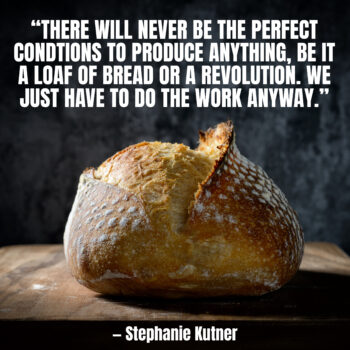
(Getty Images)
“I’m staying sane during the pandemic by reclaiming an age-old Jewish tradition: baking bread.”
“There will never be the perfect conditions to produce anything … we just have to do the work anyway.”
A year into this pandemic, I’ve moved four times and am back home in Las Vegas, for the moment. My living circumstances have not allowed me to cook or garden much, which is driving me mad. Thanks to Patreon, I make just under $500 a month, and I’m not looking for my 39th job anytime soon. Once my tax refund hits, I’m thinking about living in a van and traveling around the country, though I don’t know how I’ll get around any of the practicalities like my hideous credit score and near total lack of savings.
But yesterday, I snuck into the 57th floor of the Mandalay Bay hotel.
In 2017, the perpetrator of the deadliest mass shooting in U.S. history holed up here. In the stairwell where cops waited to enter his room, there’s now a placard bearing Nevada’s trespassing code. I took another stairwell and walked slowly down the hallway where he rolled 21 cases of guns and ammo.
Soon enough, hotel security found me, asked me what I was doing and threw me out. I learned then that when you get banned from one MGM-owned property, you get banned from all of them.
Recently I became deeply involved in the Belarusian Freedom Movement on the streets of Chicago. It’s now six months out from the sham elections. There are over 250 political prisoners. And still, the people meet every Saturday in the snow on a small corner in Skokie.
Love or stillness, the kind I sought a year ago, the kind I’m always seeking, is not something you can possess or carry. It’s some umbilicus joining us to everything. Sometimes, if we’re lucky enough, we know it has felt our twitchings and yearnings because it has responded in kind and placed us on the right path with the right people.
There will never be the perfect conditions to produce anything, be it a loaf of bread or a revolution. We just have to do the work anyway.
— Stephanie Kutner
“As a rabbi, how can I best serve my congregants when we can’t ‘be there’ for one another?”
“I hope we don’t forget what it feels like … to be human.”
We have spent thousands of years turning our world into a familiar and habitable place. We have carefully curated our surroundings to convince us that we are the main characters on this planet. One year into this pandemic we are reminded that we are strangers in a strange land. We have seen traffic arteries cleared of cars while ventilators were clearing lungs. We have learned the humility of a global sabbath, of being still. And at the same time we have never felt more human.
When families go through loss before a wedding or a bar mitzvah, they will sometimes say to me, ‘We don’t want to mention that. We want it to be happy.’ I will then suggest they think of the sanctuary like the human heart. It’s a place that contains everything all at once.
Loss mixes with love mixes with joy mixes with tears. It’s a place where we don’t think of things as messy and chaotic but as one feeling teaching another to feel itself more deeply. This past year, we have had no choice but to feel it all at the same time. I hope we don’t forget what it feels like to be a creature and to be human.
— Rabbi Aaron Brusso
JTA has documented Jewish history in real-time for over a century. Keep our journalism strong by joining us in supporting independent, award-winning reporting.
